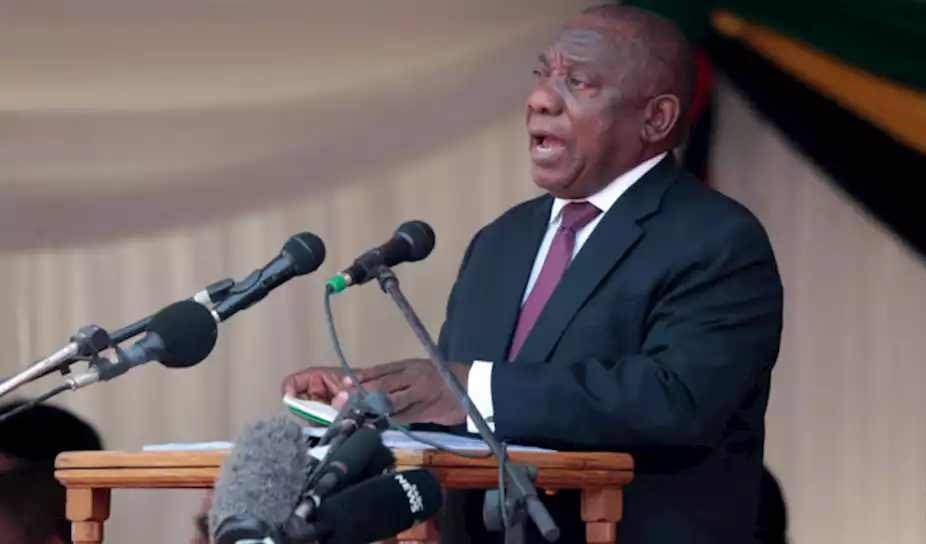South Africa to recall all diplomats from Israel
The South African government said on Monday it would recall all its diplomats from Israel to “signal” its concern over the situation in Gaza. Khumbudzo Ntshavheni, a minister in the president’s office, told a press briefing that all diplomatic staff in Tel Aviv would be asked back to Pretoria for consultations, without providing further details. […]

South Africa’s President Cyril Ramaphosa
The South African government said on Monday it would recall all its diplomats from Israel to “signal” its concern over the situation in Gaza.
Khumbudzo Ntshavheni, a minister in the president’s office, told a press briefing that all diplomatic staff in Tel Aviv would be asked back to Pretoria for consultations, without providing further details.
“We are… extremely concerned at the continued killing of children and innocent civilians in the Palestinian territories and we believe the nature of response by Israel has become one of collective punishment,” Foreign Minister Naledi Pandor told a later press conference.
“We felt it important that we do signal the concern of South Africa while continuing to call for a comprehensive cessation (of hostilities)”.
- Devaluation pushes Nigeria’s debt to N89.2trn
- NIGERIA DAILY: Step By Step Guide On How To Hold Politicians Accountable
Fighting has raged in the Gaza Strip for about a month since Hamas militants launched an unprecedented attack over the border from the territory into Israel on October 7.
More than 1,400 people, most of them civilians, have been killed in Israel since the attack, during which Hamas took more than 240 people hostage.
In response, Israel has relentlessly bombarded Gaza and sent in ground troops, with the health ministry in the Hamas-run Palestinian territory saying more than 9,700 people have been killed, also mainly civilians.
Pretoria has long been a vocal supporter of the Palestinian cause, with the ruling African National Congress (ANC) party often linking it to its own struggle against apartheid.
Pandor said the recall of the diplomats was “normal practice”, adding the envoys would give a “full briefing” on the situation to the government, which would then decide whether it can be of assistance or if a “continued relationship is actually able to be sustained”.
